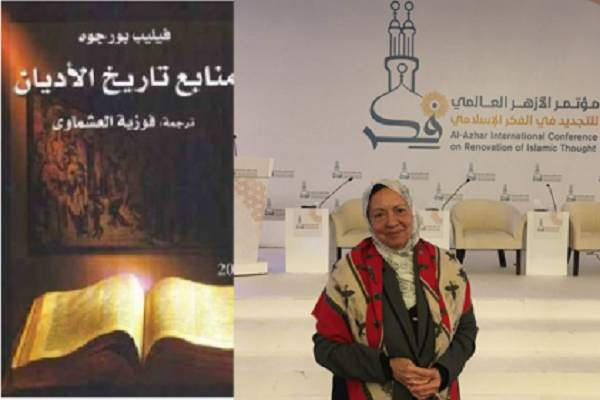Efforts to Elevate Women’s Status in Islamic Communities

She was also a member of the Supreme Islamic Affair Council, affiliated to Egypt’s Awqaf ministry, and a UNSECO adviser.
Al-Ashmawi, who died a few weeks ago, spent her life in modernizing religious teachings with an emphasis on the intellect and had extensive studies in such areas as women’s status in Islam.
She had a special view about modernism in religious address. Her thought could viewed as centrist, something between completely rejecting and completely accepting religious address and outlook. She underlined that the text of the Quran is certain and unchanging but Fiqh (Islamic jurisprudence) and Quran interpretation are variable and should change based on the conditions of life, environment and scientific and technological advances. She said this should be given special attention in terms of issues related to women.
Al-Ashmawi stressed that renewing religious discourse does not mean introducing changes to the Quran, saying the Quran has a text no word or letter of which can be altered but what can be reexamined is interpretation of the verses as they can be interpreted based on social, economic, political, medical and biological advancements. She said that here there are issues at work that have gone through changes over the past 14 centuries. This view is especially important in issues related to woman
She clearly considered herself to be in favor of modernism in Fiqh but did not believe that this meant denying religious texts. She was also in favor of the intellect, believing that old texts should be reviewed based on the intellect.
Al-Ashmawi believed that women have a special status in Islam and that cases of violence against women seen in some Muslim communities have nothing to do with the religion. She recounted parts of the history of Islam about the Holy Prophet (PBUH) consulting with his wives about important issues like war and peace, including the Treaty of Hudaybiyyah, stressing that the history of Islam and Seerah of the Holy Prophet (PBUH) shows the important status of women in Islamic society.
In the past 14 centuries, men have dominated Fiqh, Tafseer (Quran interpretation) and other religious sciences. That is why they have offered a male-based interpretation of Islamic rules that some say were in accordance with the conditions of that time. However, a look at the Seerah of the Holy Prophet (PBUH) proves such an approach incorrect. There are Hadiths whose source were the wives of the Prophet (PBUH).
Fawzia al-Ashmawi can be considered one of the major figures who favored a change in how women’s issues are viewed in Egypt and an end to discrimination against women in the society under the pretext of religion.
Hence, in cooperation with the University of Al-Azhar, she strived to pave the way for passing laws that ban violence against women. She, however, would always underscore the need for cultural growth and raising a new generation based on the Seerah of the Holy Prophet (PBUH) about women in order to eliminate violence against women.


